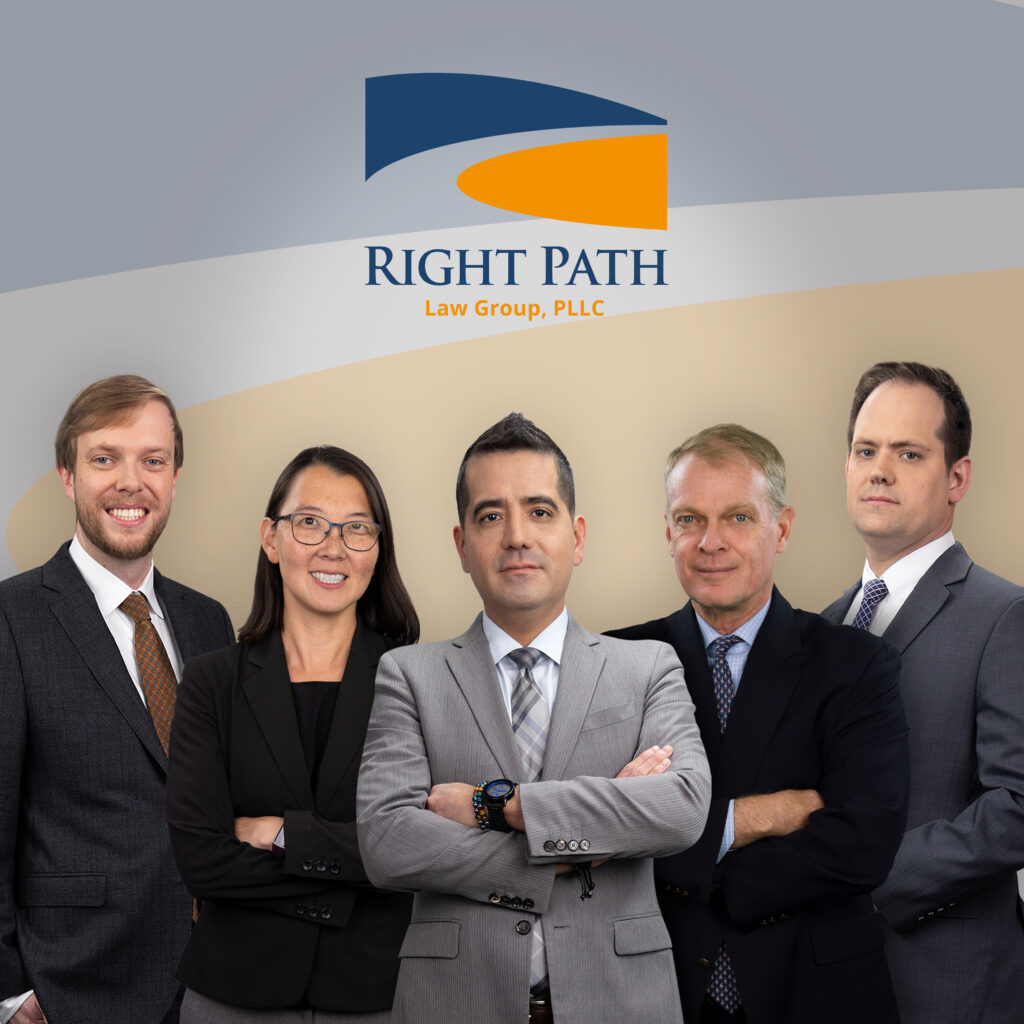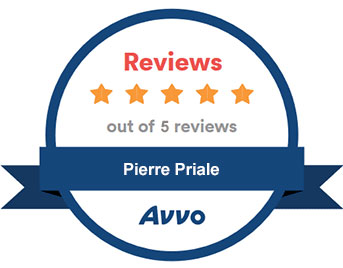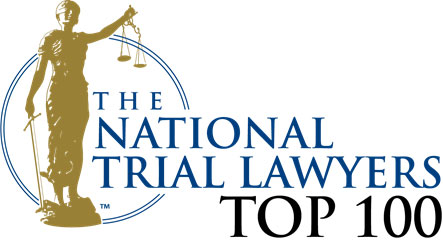When someone else’s negligence or misconduct causes the loss of a loved one, a Fairfax wrongful death attorney can seek justice and compensation for your loss.
At Right Path Law Group, we understand that no amount of money can bring back your loved one. However, holding the party responsible can bring justice, closure, and financial stability for your family’s future.
Call us today at (571) 556-8710 for your free initial consultation.
Table of Contents
- Why Choose the Right Path Law Group?
- How Much Is My Wrongful Death Case Worth?
- Why Do Wrongful Death Cases Happen?
- Types of Wrongful Death Accident Cases
- Fighting the Insurance Company
- What to Do After a Wrongful Death Accident in Fairfax?
- Have You Lost a Loved One In a Fairfax Wrongful Death Accident? Contact the Right Path Law Group Today
Why Choose the Right Path Law Group?

Experiencing the loss of a loved one is profoundly challenging, especially when it results from another party's negligence. The ensuing emotional distress, financial strain, and legal intricacies can be formidable. Having a knowledgeable and compassionate legal team by your side during this difficult period is invaluable.
At the Right Path Law Group, we assist families through a troubling time. We will work to get your family the full and fair compensation you deserve.
We are known for our successful track record in wrongful death cases. We are a dedicated wrongful death legal team at the Right Path Law Group.
We offer compassionate and personalized legal representation. You can trust that we will assert aggressive negotiation tactics with insurance companies to get you the best results.
How Much Is My Wrongful Death Case Worth?
It can be uncomfortable to try to evaluate the value of a wrongful death claim because it can feel like assigning a monetary value to your loved one. However, a successful wrongful death claim provides financial relief for:
Economic Damages
Families can recover from their financial losses after a wrongful death.
A wrongful death attorney can recover the losses you sustained, including:
- Lost income and future earnings of the deceased
- Funeral and burial costs
- Medical bills from the deceased’s final treatment
- Lost inheritance
- Lost health insurance and life insurance benefits
Non-economic Damages
Non-economic damages include the intangible losses that are associated with the loss of a loved one from a wrongful death accident.
Families can recover from their non-economic losses, including:
- Pain and suffering endured by the deceased before the loved one passed
- Loss of companionship, love, and parental guidance
- Emotional distress and grief of surviving family members
Punitive Damages
Courts might award punitive damages in cases of gross negligence that lead to a fatal accident. Punitive damages punish the defendant for outrageous behavior rather than compensating the victim’s family.
Why Do Wrongful Death Cases Happen?

Wrongful death accidents happen because of the negligence of another person or entity. Fairfax, Virginia, is one of the busiest and most populated areas in the state, making it a hub for serious accidents and wrongful death cases.
Whether due to negligent drivers, unsafe work conditions, or medical malpractice, wrongful death accidents happen more often than people realize.
Fairfax has high-traffic highways and intersections, increasing the risk of fatal car, motorcycle, and truck accidents. Truck accidents tend to happen on major roadways like I-65, Route 50, and I-495.
Construction sites, particularly those without adequate safety measures, can be dangerous and may result in severe accidents caused by falls, equipment malfunctions, or structural failures.
A significant incident is the 1973 Skyline Plaza collapse in Bailey’s Crossroads, which resulted in the deaths of 14 workers due to the premature removal of shoring during construction.
Wrongful deaths that happen because of medical negligence can happen in hospitals and clinics throughout the city. Elderly residents in nursing homes are vulnerable to neglect or abuse, leading to fatal outcomes. Inadequate staffing, poor training, or neglect of medical needs can contribute to wrongful deaths in these settings.
Wrongful deaths can happen in public recreational areas, including parks, swimming pools, and sports facilities. Drownings, falls, or equipment failures in these areas can lead to tragic outcomes.
Property owners must ensure their property is safe from the unreasonable risk of danger. Unfortunately, some property owners negligently maintain their property and cause the death of a visitor.
Pedestrian and bicycle accidents often occur at busy intersections or poorly lit areas. Drivers failing to yield, speeding, or driving under the influence can cause fatal accidents involving non-motorists.
Wrongful death incidents in Fairfax, Virginia, can happen in diverse settings, from busy highways to medical facilities. Recognizing these common locations underscores the importance of vigilance, adherence to safety protocols, and the need for legal recourse when negligence leads to the loss of life.
The Right Path Law Group attorneys are here to support you, no matter where or why the accident happened. Call us for your free initial consultation to learn more about how to protect your family’s legal rights after a wrongful death accident.
Types of Wrongful Death Accident Cases
Virginia law allows families to recover for wrongful death claims in cases where negligence or misconduct directly caused a person’s death. Common causes include:
Medical Malpractice
Many wrongful death cases in Fairfax, Virginia, happen because of medical negligence or mistake. For example, mistakes during surgeries, medication errors, misdiagnosis, or delayed diagnosis can all lead to a wrongful death, allowing the family to seek compensation.
Motor Vehicle Accidents
Motor vehicle accidents happen across the state, and some end in fatalities. Families may sue for wrongful death after deadly car accidents, truck accidents, motorcycle crashes, or pedestrian and bicycle accidents.
Nursing Home Abuse and Neglect
Elderly residents may suffer malnutrition, falls, or medical neglect, leading to preventable fatalities. An attorney can help your family seek justice and compensation from a negligent nursing home or long-term care facility.
Defective Products and Dangerous Drugs
Defective products and drugs can lead to preventable death. Families may recover compensation for their loss and suffering if companies failed to warn customers of risks.
Fighting the Insurance Company
Wrongful death cases are complex; insurance companies often delay or deny claims. A dedicated lawyer can investigate the cause of death by gathering medical records, accident reports, and professional opinions.
An attorney can prove liability and show that negligence or misconduct caused the death.
Your wrongful death lawyer will negotiate with insurance companies to ensure that you receive a fair settlement. If the negotiations fail, your lawyer can represent you in court after trialing your case.
Having an attorney when dealing with an insurance company is important because insurance companies prioritize profits over your loss. You need an advocate who will fight for your family’s best interests.
What to Do After a Wrongful Death Accident in Fairfax?

The steps that you and your family take after a wrongful death make all the difference when seeking financial compensation. If you are dealing with a wrongful death accident, here are the most important things to do:
Seek Medical and Legal Documentation
After losing a loved one who was receiving medical treatment before their passing, preserve all medical records and bills. Request an official copy of the death certificate from the hospital or relevant authorities. Additionally, obtain a copy of the police report or accident report if the wrongful death occurred due to a car accident, workplace incident, or other circumstances involving law enforcement.
We can obtain this critical wrongful death evidence for you.
Gather Evidence and Preserve Important Documents
As soon as possible after losing a loved one in a wrongful death accident, start collecting pertinent evidence. Gathering strong evidence to prove liability is necessary to ensure your family receives the full compensation it deserves.
Collect photographs, witness statements, and videos from the accident scene. Keep copies of medical bills, funeral costs, and other expenses related to the death. Save all correspondence with insurance companies, employers, or other involved parties.
Do Not Speak to Insurance Companies
Depending on the cause of the accident, you might deal with multiple insurance companies throughout the wrongful death claims process.
An insurance company might contact you quickly after the accident. Avoid giving a written or recorded statement without legal advice.
Families should avoid signing or accepting settlement offers before consulting an attorney. Initial settlement offers usually do not cover the full extent of your losses. Remember that insurance adjusters prioritize their company’s profits, not your family’s well-being.
Speaking to an attorney before an insurance company is important because a wrongful death lawyer can negotiate on your behalf to prevent lowball settlements that will not cover long-term expenses.
Understand Who Can File a Wrongful Death Lawsuit in Virginia
Wrongful death laws vary based on state law. Working with a Virginia wrongful death attorney is important to determine whether you have the legal right under state law to file a wrongful death claim.
In Virginia, the personal representative of the deceased’s estate must file the lawsuit, but compensation goes to surviving family members.
Eligible beneficiaries include:
- Spouse
- Children or grandchildren
- Parents or siblings (if no spouse or children exist)
- Other dependent family members
A Fairfax wrongful death lawyer at the Right Path Law Group can explain your legal options and take the right steps to pursue justice for your loved one.
Work With a Right Path Law Group to Help Determine the Compensation You Deserve
A Right Path Law Group wrongful death attorney can determine what compensation your family may deserve after a fatal accident. Families can recover economic, non-economic, and, in extreme cases, punitive damages.
Compensation can cover funeral expenses, lost earnings, emotional distress, and other losses resulting from the tragic event.
Be Aware of the Virginia Statute of Limitations
Virginia law gives families two years from the date of death to file a wrongful death claim. Failing to file within the deadline may result in losing your right to compensation.
Act quickly to preserve evidence and maintain the strength of your case.
Consulting an experienced attorney can ensure you meet all necessary deadlines and protect your legal rights.
Contact a Lawyer at the Right Path Law Group
Our attorneys can help your family get the support that they deserve after a wrongful death.
A wrongful death attorney can handle all legal aspects while you focus on healing. They will investigate the accident, gather evidence, and negotiate with insurance companies. If necessary, they will represent you in court to secure the justice your loved one deserves.
Have You Lost a Loved One In a Fairfax Wrongful Death Accident? Contact the Right Path Law Group Today

Compensation cannot replace a loved one, but it ensures justice for the affected family. If a wrongful death occurred in Fairfax, families should not have to face this period alone.
The Right Path Law Group assists families in seeking accountability from responsible parties and securing compensation for medical bills, funeral costs, lost income, and the emotional impact of the incident.
Virginia law permits families to file a wrongful death claim within two years. Act promptly to seek justice.
Call (571) 556-8710 for a free initial consultation to learn your legal options. Payment is contingent on winning the case, allowing families to focus on healing while the group manages the legal procedures.
